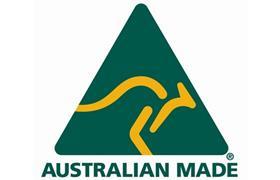
Industry groups are urging the Australian government to press ahead with its plans to introduce mandatory country oforigin labelling (CoOL).
The move comes after the World Trade Organisation’s (WTO) declared that the US’ new CoOL system violates international law. Ian Harrison, chief executive of the Australian Made Campaign, said the recent ruling by the WTO should have noaffect on the implementation and enforcement of stricter CoOL laws in Australia.
“Issues relating to the US’ country-of-origin regime should have no bearing on the Australian Government’s stated intention to provide consumers with improved country-of-origin labelling here in Australia - it should not be distracted by a largely unrelated matter,” Harrison explained. “The WTO’s decision relating to the system introduced in the US was more to do with complex requirements regarding the traceability of beef products than straightforward country-of-origin legislation.”
TheAustralian Made Campaign administers and promotes the Australian Made, Australian Grown logo, Australia’s registered country-of-origin certification trademark for all classes of Australian goods. The rules for using the logo on food products are more stringent than the current rules for making country-of-origin claims under Australian Consumer Law.
The group welcomed the Australian Government’s recent announcement to consult with stakeholders and undertake consumer research into the introduction of a mandatory ‘Australian content’ symbol for all locally grown fresh produce. Andrew White, CEO of industry body Ausveg, said there was strong support for the move.
“Australian consumers overwhelmingly want to see improvements to the current system, with a consumer survey conducted last year indicating that 85 per cent of respondents believe it was crucial or very important for them to be able to identify if the food they buy has been grown in Australia,” White said. “Elements of the Australian food industry, who have been working for years to prevent a meaningful CoOL system being implemented, should not be allowed to get away with using this ruling to suggest that international trade obligations are a barrier to better laws that provide Australian consumers with clarity about where the food they are buying comes from.”






No comments yet